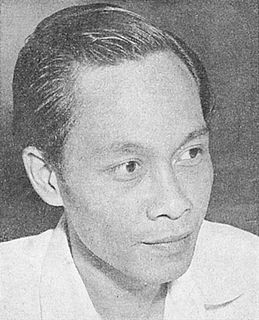A Quote by Kurt Vonnegut
If a person survives an ordinary span of sixty years or more, there is every chance that his or her life as a shapely story has ended and all that remains to be experienced is epilogue. Life is not over, but the story is.
Related Quotes
If the point of life is the same as the point of a story, the point of life is character transformation. If I got any comfort as I set out on my first story, it was that in nearly every story, the protagonist is transformed. He's a jerk at the beginning and nice at the end, or a coward at the beginning and brave at the end. If the character doesn't change, the story hasn't happened yet. And if story is derived from real life, if story is just condensed version of life then life itself may be designed to change us so that we evolve from one kind of person to another.
He did not know that the new life would not be given him for nothing, that he would have to pay dearly for it, that it would cost him great striving, great suffering. But that is the beginning of a new story -- the story of the gradual renewal of a man, the story of his gradual regeneration, of his passing from one world into another, of his initiation into a new unknown life. That might be the subject of a new story, but our present story is ended.
The autobiographer looks at life through the lens of his or her own life and really uses herself or himself as the jumping-off place to examine the social mores and the economic and political climates. In a way, the autobiography becomes history as well as the story of one person, for it becomes the story of a family or the story of the state or nation.
The Work always leaves you with less of a story.
Who would you be without your story?
You never know until you inquire.
There is no story that is you or that leads to you.
Every story leads away from you.
Turn it around; undo it.
You are what exists before all stories.
You are what remains when the story is understood.
My life after childhood has two main stories: the story of the hustler and the story of the rapper, and the two overlap as much as they diverge. I was on the streets for more than half of my life from the time I was thirteen years old. People sometimes say that now I'm so far away from that life - now that I've got businesses and Grammys and magazine covers - that I have no right to rap about it. But how distant is the story of your own life ever going to be? The feelings I had during that part of my life were burned into me like a brand. It was life during wartime.
And of the Witch? In the life of a Witch, there is no "after", in the "ever after" of a Witch there is no "happily"; in the story of a Witch, there is no afterword. Of that part that is beyond the life story, beyond the story of the life, there is-alas, or perhaps thank mercy-no telling. She was dead, dead, and gone, and all that was left of her was the carapace of her reputation for malice.
Such was the love of this grandson for his grandmother that two years after the death of his mother, when she herself fell gravely ill, he vowed to her that someday he would try to tell the world her life story. 'But why?' she asked humbly. 'I'm no one, just a girl from the coast' 'But you are everyone, Grandma,' the young Pramoedya told her. 'You are all the people who have ever had to fight to make this life their own.





































